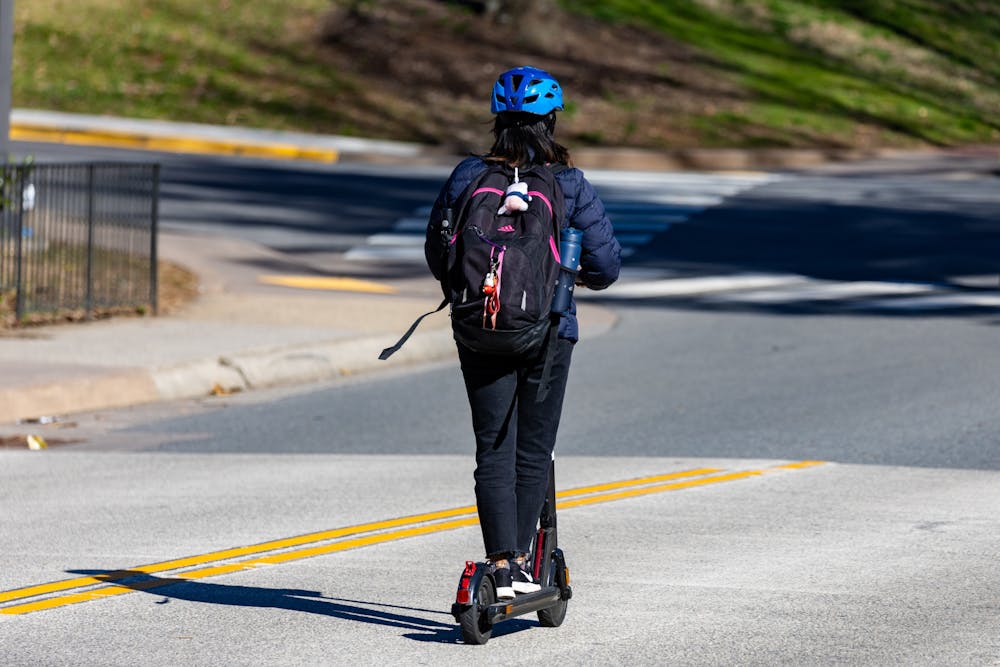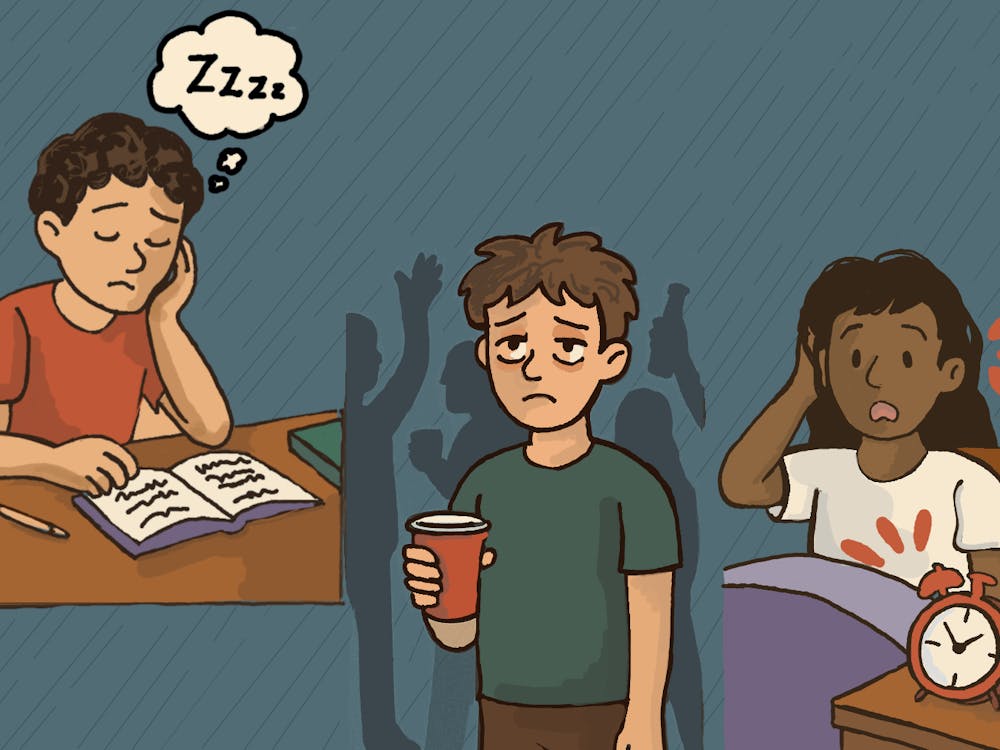With the University spanning around 1,682 acres of land, walking to class is not always the easiest commute. Long routes, crowded sidewalks and vehicle traffic pose challenges for students who travel on foot. As a result, micro-mobility vehicles — which consist of low-speed, human- or electric-powered devices — have become popular alternatives to walking at the University. From traditional bikes to electric scooters and unicycles, students are traveling more efficiently on wheels, although some raise concerns over their safety on the roads.
For many students, especially upperclassmen who live off-Grounds, commuting with micro-mobility vehicles is more reliable and time-efficient than walking. Third-year College student Dhruv Dhawan used to walk 15 minutes from his apartment to central Grounds. Now, he frees up time by commuting to class with his electric scooter.
“I mostly wanted [an e-scooter] because I found myself spending several hours a week just commuting to classes,” Dhawan said. “I realized I could cut that down a lot if I had a scooter.”
Second-year College student Sydney Mannion shared similar sentiments to Dhawan. She spoke to the convenience of riding her bike as opposed to weaving through sidewalks as a pedestrian.
“It's faster,” Mannion said. “I can spend more time doing other things rather than walking and navigating the crowds.”
Some students have explored less traditional forms of transport. After riding a bike his first year, third-year College student AJ Nye opted for an unusual transport device — an electric unicycle. While the balancing skills made the e-unicycle harder to pick up than bikes or scooters, he found a thrill in learning how to ride the device.
“I thought it was a very fun method of transportation,” Nye said. “It's harder to learn, but it's much more enjoyable in the moments once you ride it.”
Like Dhawan and Mannion, Nye said his wheels reduce the effort and time needed for his commute. For him, an e-unicycle makes navigating the University’s hilly areas nearly effortless, although staying balanced still requires a lot of core strength.
“The issue with a bike is that U.Va. has too many hills to be able to traverse without an electric vehicle,” Nye said. “I decided that for the sake of time and speed and convenience, it's much easier to ride an electric vehicle.”
The convenience of micro-mobility vehicles can come with a cost, however. Mannion discussed some wheeling difficulties she has experienced, from helmet head to popped tires. She also once dealt with unexpected issues with her bike lock.
“My bike lock just would not open … [and] facilities could not cut my bike lock for me when it was stuck,” Mannion said. “So I had to go out and buy a pair of bolt cutters to free the bike. It was sitting at Clark for like two weeks before I got around to doing that.”
Wheelers also worry about their personal safety on the road, especially in the wake of recent car and micro-mobility vehicle accidents on Grounds. Students act accordingly by being cautious about surrounding traffic and wearing helmets. Nye said he wears a motorcycle helmet when he rides on his e-unicycle.
“I worry about my safety I would say, but no more than any other vehicle that's like a bike or scooter or skateboard,” Nye said. “But it is why I wear a helmet, like a motorcycle helmet, as I'm worried about head collision damage in the worst event … I am worried about head trauma.”
Dhawan, Mannion and Nye agree that University roads lack adequate bike lanes. Without bike lanes, students using micro-mobility vehicles end up fighting with cars for space, which puts their safety at risk. Dhawan talked about this problem as it pertains to traffic near the Corner.
“I think it gets a little messy when it comes to the main road, Main Street, because when we're on Main Street, [there's] no bike lane anymore at that point,” Dhawan said. “So you have to be on the main road, but then all the cars get frustrated.”
Nye said more bike lanes should be built to promote safer commutes. He said that bike lanes make it easier for motor vehicles to navigate the roads alongside cyclists and scooters, allowing drivers to anticipate where the wheelers will ride.
“[Bike lanes] make it easier for cars and other other vehicles to traverse the route,” Nye said.
Despite challenges with micro-mobility vehicles, many students have gravitated towards these more efficient modes of transport, and the University has responded with other forms of infrastructure. Nye has noticed that some walkways on Grounds are designed for people to carry bikes and scooters — and the occasional unicycles — while they climb stairs. He pointed out such a staircase on Jefferson Park Avenue leading to Engineering Way that he frequently uses.
“I noticed that the staircase has a little groove on the other side that lets you walk a bicycle up it,” Nye said.
Mannion said she appreciates the additional micro-mobility infrastructure in and around new construction at the University. Though she too would like to see more bike lanes, she applauds the University’s ongoing efforts to accommodate all the Wahoos on wheels.
“I think it's pretty good with all the new buildings that have been made, like [Shannon Library] — how they built bike racks outside,” Mannion said. “I think [the University is] definitely supportive of having space for bike racks … They're definitely discouraging cars, which is good for the environment and is good for me.”







